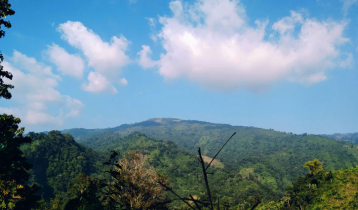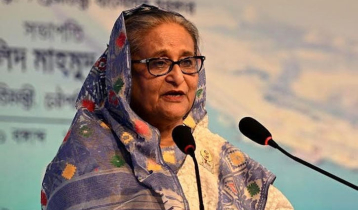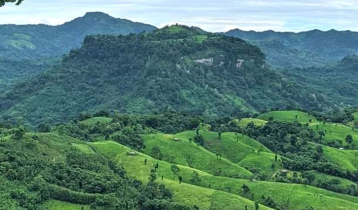How India-China relation influences Teesta issue
Tamanna Islam || risingbd.com

At the heart of the current Bangladesh-India bilateral relationship is the Teesta Water Sharing Agreement. Despite the development of India’s trade, economic, cultural and political relations with Bangladesh, the Teesta water sharing agreement is still unresolved. Therefore, India’s position in the Teesta water sharing agreement and how Bangladesh will benefit from the Teesta project with China has become an important issue.
Teesta is an international river. The Teesta is one of the 54 rivers that have entered Bangladesh from India. It originated from Solomo Lake in India and flowed through Sikkim and West Bengal and entered Bangladesh through Rangpur district. It later merged with the Brahmaputra river near Chilmari.
The Teesta Accord was to be signed in 2011 during the visit of the then Prime Minister of India Manmohan Singh to Dhaka. But it was stalled as West Bengal Chief Minister Mamata Banerjee continued to oppose.
Then in the year after coming to power in 2014, that is in 2015, the Prime Minister of India Narendra Modi visited Bangladesh with Mamata Banerjee. There he assured that an agreement would be reached on the sharing of Teesta water. But five years later, the Teesta problem has not been resolved.
During the last visit of the Prime Minister of Bangladesh Sheikh Hasina to India in 2019, there was a possibility of a settlement on the distribution of Teesta water, but it did not happen.
There is a kind of frustration in Bangladesh over the lack of Teesta water sharing agreement and India's role in some bilateral issues. Mamata Banerjee-led Trinamool Congress won 213 of the 294 seats to form a government for the third time in a row. But there are considerable doubts as to whether Bangladesh will find a solution to the Teesta water sharing agreement in the future.
Teesta is a curse for the people of northern Bangladesh. Teesta water carries a huge amount of silt from the Himalayas every year. This has created small voting canals and islands in its network. Due to these, floods occur frequently and river banks break severely during the monsoon season.
On the other hand, the opposite figure is in the dry season. But due to lack of protection thousands of people lost their lands, houses, livelihoods. As a result, the government of Bangladesh has to face huge loss of money and infrastructural development is hampered.
China now holds a strong position in South Asian geopolitics. The Sino-Indian "Cold War" is taking place in South Asian geopolitics due to disputes with China over various important issues, including India's Ladakh border. China wants Bangladesh to stand by its own interests and for a competitive relationship with India.
Bangladesh is now a sphere of influence in South Asia in terms of its geographical location, emerging economy and geopolitics. China has made 9 percent of its investment in Bangladesh. For strategic reasons, China extended a helping hand to Bangladesh in 2020 through a project called "Teesta River Comprehensive Management and Restoration".
In the proposed Teesta project, 115 km of the Teesta River within the borders of Bangladesh will be extensively excavated, the depth in the middle of the river will be increased to 10 m and the width of the river will be greatly reduced. At the same time, opportunities for cultivation will be created by rescuing land through river management.
A 115 km long four-lane road will be constructed along the two banks of the river. Irrigation system will be developed in the dry season on the cultivable lands on both the banks of the river by constructing several barrages-cum-roads at suitable places to ensure communication between the two banks of the river as well as by conserving the huge surplus water of the river flowing during monsoon. In addition, extensive industrialization and urbanization facilities will be built along the roads on both the banks of the river.
Although India and China have continued their trade relations, there has been little response to China’s recent Teesta treaty. Many believe that some of India’s diplomatic issues are involved.
At present, the situation in India is fragile due to the Corona epidemic. India is 25 years behind in this epidemic. Therefore, Bangladesh should negotiate with China on the Teesta Treaty and further strengthen relations through strategic planning. This will create a lucrative position in Bangladesh.
Now the question is if Bangladesh joins China in Teesta project then what is the benefit to Bangladesh? Since the Teesta River is involved in the livelihood and economy of the people of North Bengal, this project will lead to economic development of the people of the region, improving the quality of life.
As a result of the irrigation project, the dynamism of agricultural work will increase and the people of North Bengal will be relieved from drought and manga.
In the dry season, agricultural work will be conducted through water retained by the dam. During the monsoon season, the flood damage in Teesta water will be less in Bangladesh. In that case the farmer will be able to protect his cultivable land and crops from the Coralgrass floods.
As a result of China's Teesta project, normal flow of water will be maintained in the Bangladesh part of Teesta. Since China will build roads with dams around the river Teesta, there will be development of tourism industry to enjoy the beauty of the river bank which will take the tourism industry of Bangladesh forward and increase the amount of GDP. Infrastructural development will increase in some districts of North Bengal as a result of which the people there.
Tamanna Islam studies International Relations at the University of Dhaka
DU/Mahfuz





































